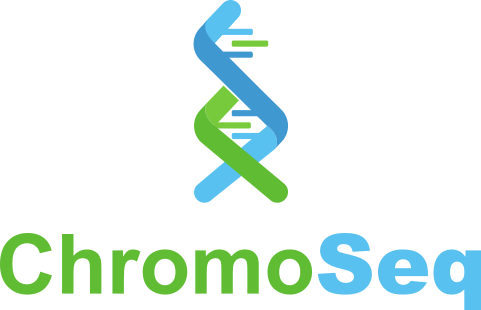
ChromoSeq™ is a whole genome sequencing (WGS) assay intended for the comprehensive clinical genomic evaluation of known or suspected hematologic neoplasms including acute myeloid leukemia (AML) and myelodysplastic syndrome (MDS). Please see test details here.
ChromoSeq™ is the first WGS-based assay for cancer to be covered by Medicare.
ChromoSeq™ differs from standard gene panels by using high coverage WGS to identify the full breadth of genomic events needed to fully classify myeloid neoplasms by 2022 WHO and ICC criteria.
ChromoSeq™ was developed at the Washington University School of Medicine by Eric Duncavage, MD, Molly Schroeder, PhD, and David Spencer, MD, PhD. The research and development were supported in part by funding through grants from the National Center for Advancing Translational Sciences and Alvin J. Siteman Cancer Research Fund.
ChromoSeq™ FAQ
Is ChromoSeq™ CAP/CLIA validated and can it be used for patient care?
Yes. ChromoSeq™ is run through the Department of Pathology and Immunology’s CAP/CLIA accredited Core Laboratory in conjunction with the Clinically Licensed Environment at the McDonnell Genome Institute.
Who is ChromoSeq™ available to?
ChromoSeq™ is available to patients with known history or new diagnosis of AML and MDS nationwide. Want to order ChromoSeq™? Please register here.
Is ChromoSeq™ the same as mate pair sequencing or ‘low pass’ WGS?
ChromoSeq™ uses standard WGS library preparation methods and does not rely on the generation of mate pairs. ChromoSeq™ targets 60x mean coverage across the genome and is a ‘high coverage’ WGS-approach.
Can ChromoSeq™ identify novel chromosomal rearrangements?
ChromoSeq™ is intended to identify recurrent genomic abnormalities in myeloid malignancies and is not intended for discovery. The ChromoSeq™ informatics are designed to report 612 recurrent structural alterations, however additional novel chromosomal rearrangements may be reported subject to confirmation on a case by case basis.
Does ChromoSeq™ require paired normal tissue?
No. ChromoSeq™ is a ‘tumor-only’ assay. Somatic status of detected variants including structural variants is imputed using publicly-available population data.
Can ChromoSeq™ detect inherited variants?
No. ChromoSeq™ is intended to detect somatic variants and cannot distinguish between inherited and somatic variants.
Can ChromoSeq™ be run on cases where conventional cytogenetics failed?
Yes. ChromoSeq™ does not require the culture of live cells like cytogenetics and may be run from archival DNA samples obtained from fresh blood or marrow.
Can ChromoSeq™ replace conventional cytogenetics?
ChromoSeq™ can recreate karyotype level data typically obtained by G-banded metaphase cytogenetics. Published performance data indicates that ChromoSeq™ is more sensitive than cytogenetics to detect some recurrent abnormalities.
How is ChromoSeq™ billed and is ChromoSeq™ testing covered by insurance?
ChromoSeq™ has received approval for coverage by Medicare and is likely covered by most commercial insurances. For Washington University and Barnes-Jewish patients, our billing team can assist with the prior authorization process. For other clients requesting the test, our dedicated team will work with you to establish specimen submission and billing operations. Any questions related to coverage and billing can be sent to our billing team via email at path-billing@email.wustl.edu.